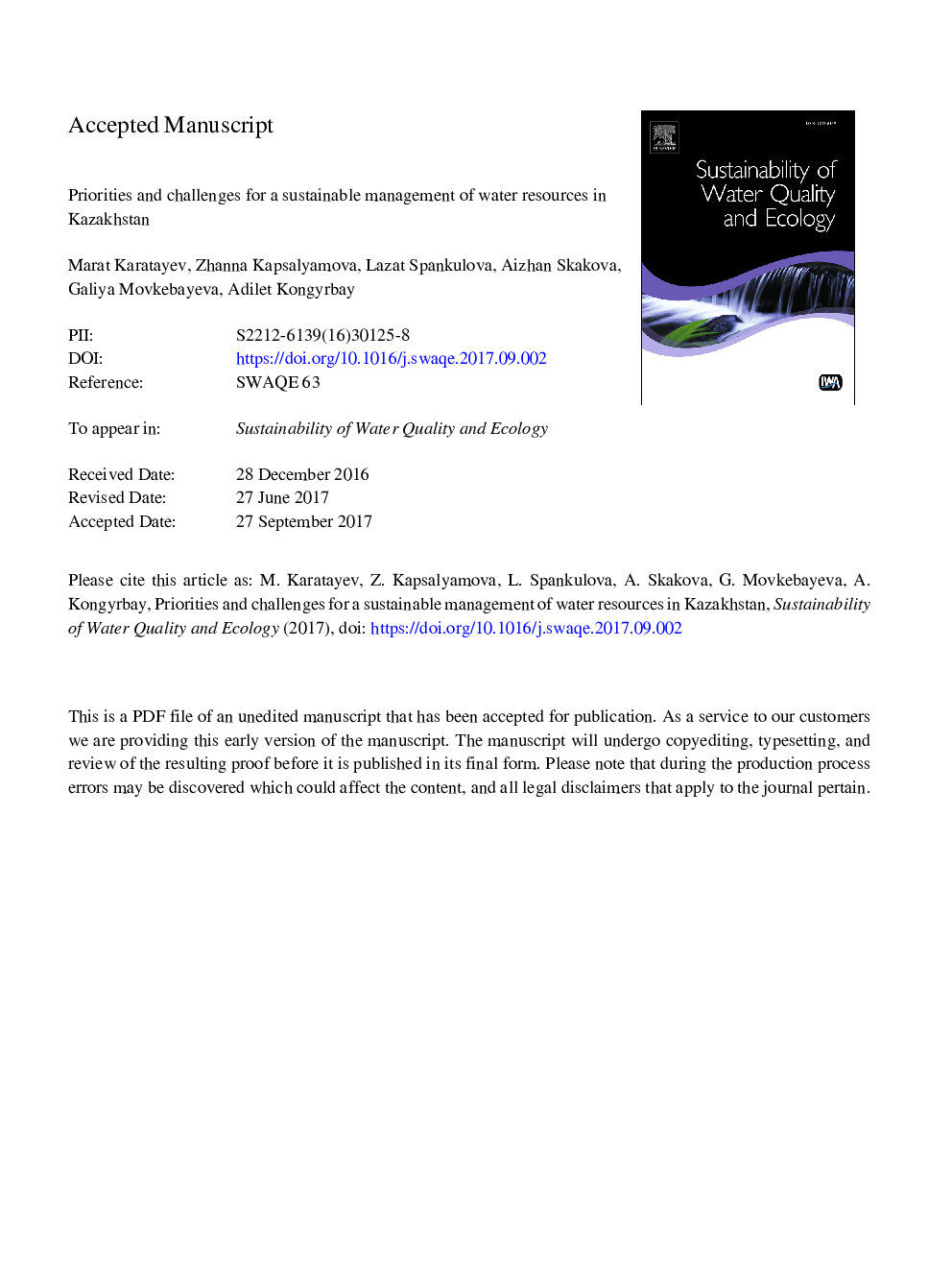| کد مقاله | کد نشریه | سال انتشار | مقاله انگلیسی | نسخه تمام متن |
|---|---|---|---|---|
| 7496788 | 1485799 | 2017 | 51 صفحه PDF | دانلود رایگان |
عنوان انگلیسی مقاله ISI
Priorities and challenges for a sustainable management of water resources in Kazakhstan
ترجمه فارسی عنوان
اولویت ها و چالش ها برای مدیریت پایدار منابع آب در قزاقستان
دانلود مقاله + سفارش ترجمه
دانلود مقاله ISI انگلیسی
رایگان برای ایرانیان
موضوعات مرتبط
علوم زیستی و بیوفناوری
علوم کشاورزی و بیولوژیک
علوم آبزیان
چکیده انگلیسی
The water availability in Kazakhstan is 37000â¯m3â¯perâ¯oneâ¯km2 and 3650â¯m3 per capita a year, an amount that is lower than the world average (around 6000â¯m3) (Knoema, 2016). It is expected that water availability falls to 2300â¯m3 per capita in a year by 2030 (FAO, 2016a). Water pollution is a further problem for exploiting available water resources. In fact, 50-70% of surface water resources in Kazakhstan have been rated “polluted” and “highly polluted” in terms of ecological status (ICSD, 2016). Apart from that, water use efficiency remains very low. The average efficiency of canal water delivery systems is only 15-20% compared to 70-90% in most developed countries (FAO, 2016b). A number of institutional and policy measures have been implemented to enhance the sustainability of water resource use and water security; however, the country is still facing a number of problems of water use in a sustainable manner. This study provides stakeholders' assessment of the critical factors that affect the sustainable management of water resources in Kazakhstan. The study rests on the results from the interviews that are further examined using the SWOC approach (Strengths, Weaknesses, Opportunities, and Challenges) and the Analytic Hierarchy Process (AHP) technique. The study demonstrates and prioritizes 32 critical SWOC factors relevant to the sustainable management of water resources in Kazakhstan. The study also determines four key stakeholder groups with differing opinions regarding the SWOC factors, which could potentially impact final policy implementation. Creating a comprehensive regulatory framework alongside decentralising water management from state water authorities to community-based water-user associations as well as investment to innovative irrigation technologies are likely to contribute towards a more equitable and efficient water distribution.
ناشر
Database: Elsevier - ScienceDirect (ساینس دایرکت)
Journal: Sustainability of Water Quality and Ecology - Volumes 9â10, November 2017, Pages 115-135
Journal: Sustainability of Water Quality and Ecology - Volumes 9â10, November 2017, Pages 115-135
نویسندگان
Marat Karatayev, Zhanna Kapsalyamova, Lazat Spankulova, Aizhan Skakova, Galiya Movkebayeva, Adilet Kongyrbay,
